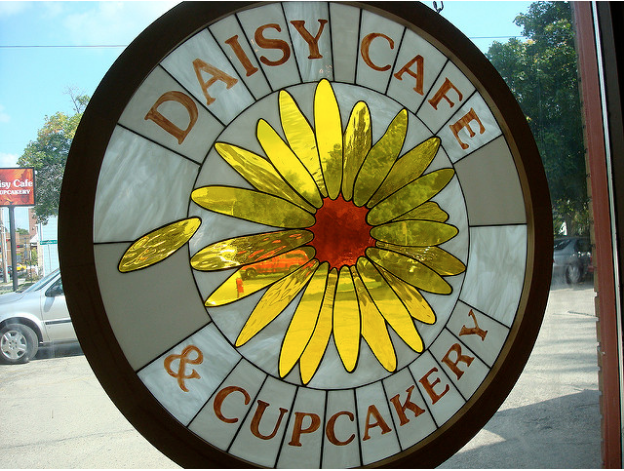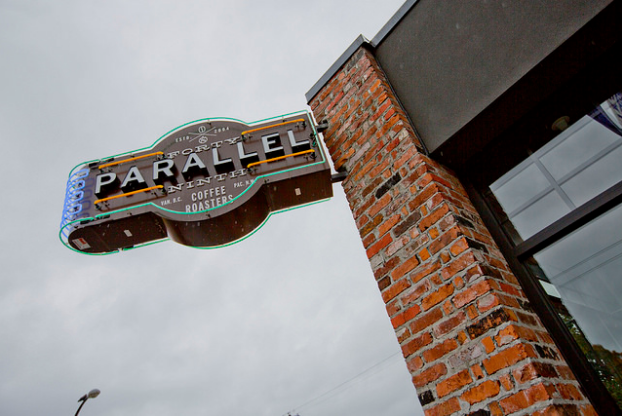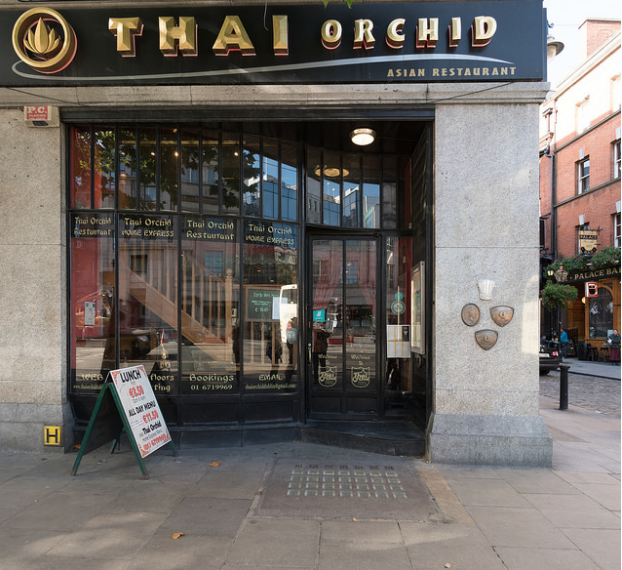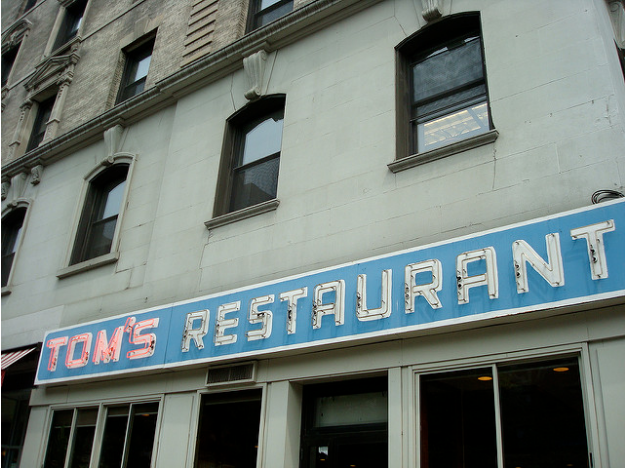 (Source: Flickr)
(Source: Flickr)
What’s in a name? When it comes to your restaurant, there’s actually quite a bit riding on choosing a good name for your establishment. The name is wrapped up in the restaurant’s branding and identity, and is part of the “face” the establishment shows to the world. A well-chosen name acts as a reflection of the restaurant, bringing together the offerings, concept, and overall ambience.
Yes, choosing a good restaurant name is important. But to help guide you in the process, here are seven important things to consider when choosing a restaurant name. By filtering through these questions and considerations, you might find that you get inspiration for potential names, and receive some sage advice for what to avoid in a name.
(Source: Flickr)
- Consider your location. Your restaurant’s location can offer inspiration for a name. Here are a few ways how:
- Geography: What makes your area special? Is it the proximity to mountains, a lake, or the ocean? The area’s geography can provide some inspiration for your restaurant’s name.
- The city: The city itself can also provide inspiration. Some major cities have taglines or nicknames which can be incorporated into your restaurant name. For instance, Seattle is referred to as “Emerald City”; Baltimore’s nickname is “Charm City”, and so on.
- History: Is the building in which you’ll house your restaurant of historic significance? For instance, if you are opening a brewpub in a location that used to be a textile mill, you could incorporate a reference to the former mill in your business name. You can incorporate the history of the building or your region into your restaurant name.
- What’s your restaurant concept? Often, a restaurant concept evolves at the same time as the name. This is natural since they are often so closely tied together. Your restaurant’s concept can either inspire a name, or rule out others.
For instance, if your vision for a restaurant is to serve Irish pub fare, a name like “Jim’s Trattoria” probably isn’t going to be the best fit. A name like “County Cork Pub” might work better. The choice that you make with the name can also set the tone for the price point of your restaurant: cafe sounds more casual (read: cheaper) than restaurant, for instance.
(Source: Flickr)
- Does it leave you room to grow? Have you chosen a name that can grow with you…or one that will keep your restaurant in a box? Be sure that your restaurant name doesn’t close off potential growth.
For example, say you call your restaurant “Pizza City”. While this does give a pretty clear indication of what you’re selling and is a straightforward name, your potential growth is limited. It might make sense to add sandwiches or classic Italian entrees to your menu, but it doesn’t, for instance, make it a natural flow for you to begin to offer farm to table fare. In this case, choosing a more open-ended name without a specific item tied to the menu might allow you more room to grow.
(Source: Flickr)
- Is your chosen name already in use? So, you’ve thought of a great name. Before you print business cards and commit to it, do a quick search to make sure the restaurant name hasn’t already been used.
It can be a conflict if there is a restaurant going by the same name. Even if they are far away from where you are and competition isn’t an issue, it can still cause unnecessary confusion. For instance, you might have difficulty reserving a domain name for your restaurant website, not to mention social media handles, because they’ve already been taken by the restaurant who chose the name first. This doesn’t mean that you totally have to ditch the name, but you might need to slightly edit it to make it more unique and allow for people to find you a bit easier. For instance, if you had chosen “Bluebird Bistro” and it’s already taken, you could choose a different bird name, or choose a different eatery synonym, such as “Bluebird Kitchen”. Sometimes, a little switch like this can make your establishment far easier to find and make it stand out.
- Is it easy to pronounce and spell? Maybe you’ve chosen a super cool-sounding foreign word as the name for your restaurant. This is all well and good, but if it’s confusing and/or hard to pronounce, this can create a problem.
Take, for instance, the famous restaurant Nobu in New York, which is named after the chef-owner, Nobu Matsuhisa. While Nobu is not a common word in English, it’s easy enough to pronounce and spell that it is memorable and accessible. However, had the chef chosen to use his last name, Matsuhisa, as the restaurant name, it might not be quite as easy to remember for many diners.
If people can’t pronounce your restaurant name, chances are they can’t spell it. This means that they will have a very tough time finding you on the web or social media. Some might just give up and choose a different restaurant. Why make it harder for people than it has to be?
- Will you be moving or expanding? A common trend these days in restaurants is to incorporate the address or street name into the name. For instance, 26 Riverside might sound pretty cool and trendy, but what happens in five years if your lease ends and you have to move locations? Oftentimes, this can cause confusion.
Confusion can also arise if you choose a super-specific location name and then expand to a second location. While “Capitol Hill Cafe” might work just fine if you’re in the center of that neighborhood, if your second location is further away, it can potentially cause confusion. This isn’t to say this isn’t done, but it’s a worthwhile consideration if you think you will be expanding.
- Do people like it? Once you’ve come up with a name that you feel really good about, assemble your own “focus group” of friends and trusted associates and run the name by them. What’s the consensus? While you will never please everybody, if your name seems to pass with flying colors with 7 out of 10 people, this is a good indication that you’ve chosen a good name. If you run it by 20 people and only 2 think it’s a great name, it might be a sign that it’s time to get back to the drawing board.
Conclusion: Choosing a restaurant name can prove tricky. It’s tough to settle on a name that not only sounds good, but indicates what type of restaurant you are, and is creative and accessible to customers. It’s absolutely worth taking the time to consider your name from a number of different angles, because it is part of your restaurant’s foundation.
How did you choose a name for your restaurant?


